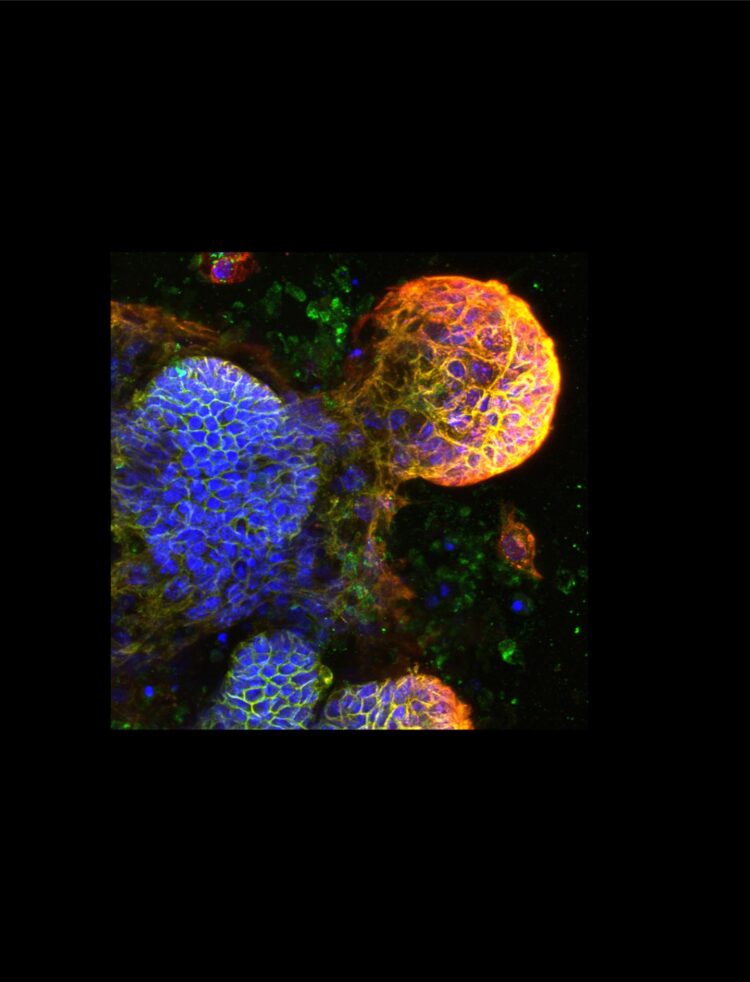A biomarker in the blood of patients with bowel cancer may provide valuable insight into the risk of cancer relapse after surgery and the effectiveness of chemotherapy.
Research published in PLOS found circulating tumour DNA (ctDNA) measured before and after surgery provided a reliable marker for predicting whether the cancer would recur following chemotherapy treatment.
The ctDNA also provided a real-time measure of the effectiveness of chemotherapy, highlighting the potential for this test to provide an early indication of the success of chemotherapy in eradicating microscopic cancer.
At a glance
- By measuring levels of ctDNA present in the blood of bowel cancer patients after surgery, researchers were able to predict the likelihood of the cancer recurring.
- Measuring the presence of ctDNA after chemotherapy provided a real time indication of whether the chemotherapy had cleared the cancer.
- ctDNA could be used as a biomarker in the future to improve patient care and treatment
Prognostic impact of ctDNA
Led by Associate Professor Jeanne Tie, who is also a medical oncologist at the Peter MacCallum Cancer Centre and Western Health, the research followed a group of patients with metastatic bowel cancer who had secondary cancer in the liver that had been removed by surgery. The study builds on earlier research reported in 2018.
The ctDNA test looks for fragments of tumour DNA in a patient’s blood before and after the removal of a cancerous tumour.
The presence of ctDNA in the blood of patients after surgery provides evidence of remaining microscopic tumours, enabling researchers to predict the likelihood of the cancer reoccurring.
Associate Professor Tie said the study once again confirmed the prognostic impact of ctDNA.
“What we found is that if ctDNA is present after surgery, it predicts an almost 100 per cent recurrence rate for these patients,” she said.
“In contrast, for patients who were ctDNA-negative after surgery, the likelihood of the cancer reoccurring was far lower, about 25 per cent.”
Measuring chemotherapy in real time
Associate Professor Tie said ctDNA also provided an indication of the effectiveness of chemotherapy.
“This biomarker could also identify whether patients would respond to chemotherapy treatment,” she said.
“Until now, we had no way of measuring the effectiveness of chemotherapy in real time. The usual process is to do the surgery to remove the cancer metastases, give the patient chemotherapy, and then follow up with CT scans every six to 12 months, to see if the cancer recurs. And if the cancer does recur, you know the treatment hasn’t worked. By measuring the ctDNA in the blood, we could immediately see whether the chemotherapy had cleared the cancer and were therefore able to predict the likelihood of the cancer recurring.”
Associate Professor Tie said ctDNA biomarkers might allow clinicians to intervene earlier.
“Cancer that can be detected on a CT scan is unlikely to be curable by chemotherapy. But if we are able to detect microscopic disease, that we can’t pick up on a scan, we can intervene earlier and potentially still offer the patient a chance of cure.”
Promising sign for the future of cancer treatment
Associate Professor Tie said while ctDNA technology was already being used in the US, further research was needed before it could be rolled out in Australia.
“The test needs to be very sensitive to be able to pick up microscopic cancer cells. I am hopeful the new technology coming through will have enough sensitivity that we will be able to use this technique in the years ahead to improve patient care and treatment,” she said.
“With further development of this technology, this could also mean patients with a low recurrence risk could avoid unnecessary chemotherapy.”
###
This work was made possible with support from the National Institutes of Health, the Virginia and D.K Ludwig Fund for Cancer Research, the Victorian Cancer Agency Clinical Research Fellowship, the Victorian Government, the Sol Goldman Sequencing Facility at Johns Hopkins, and the John Templeton Foundation.
Media Contact
Samantha Robin
[email protected]
Related Journal Article
http://dx.





